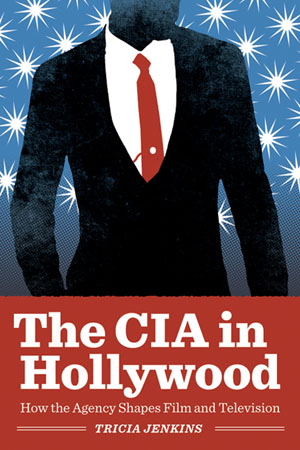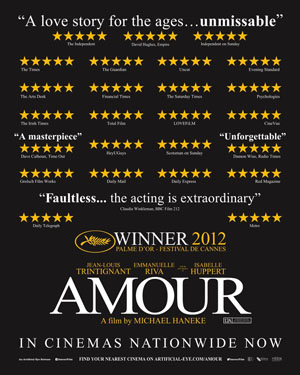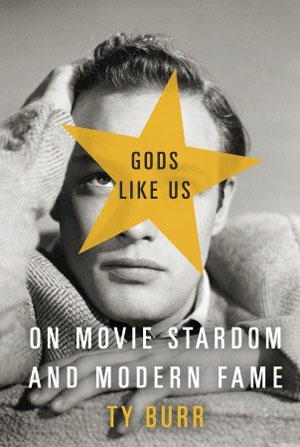There’ll be no escaping the Oscars today, so you might as well have a bit of fun before the parade. And you’re best ticket for that is A.S. Hamrah‘s preview for n+1. On the other hand, if you’re in no mood for fun, I refer you to Michael Atkinson, who, at Sundance NOW, aims to “take the Oscars down, once and for all, empirically and longitudinally.”
At any rate, Hamrah opens his package of impressions of this year’s contenders on a serious note before cutting loose on the likes of The Master and Moonrise Kingdom: “The new CIA-rehab thriller, as a genre, is anti-conspiracy. Unlike the domestic spy thrillers of the 1970s, today’s CIA apologist thriller does not reveal how official truth is an illusion, an elaborate cover-up constructed to hide abuses of power.” He’s referring, of course, to Argo and Zero Dark Thirty, and, as it happens, the Los Angeles Review of Books has posted two pieces today right up the same alley.
The first comes from none other than Tom Hayden: “While a robust debate has emerged about Zero Dark Thirty‘s depiction of torture, the film largely celebrates the tireless spycraft of a CIA analyst who was complicit. Meanwhile, Argo is an unqualified nod towards the CIA’s collaboration with Hollywood in liberating hostages held in Iran in 1979. Argo and Zero Dark Thirty are only the latest film productions the CIA has influenced in the 15 years since the Agency opened its official liaison office to Hollywood. Tricia Jenkins examines that history of ‘Hollywood confidential’ in The CIA in Hollywood: How the Agency Shapes Film and Television. Short and dry, her book raises serious ethical and legal questions about the relationship between the CIA and Hollywood, and the extent to which we consume propaganda from one through the other.”
But Richard Beck argues that Zero Dark Thirty is “a masterpiece. 9/11 was a mass murder, but it was also designed as a media spectacle. The whole point of flying planes into skyscrapers was to set off explosions high in the air where everyone could see. When the United States launched the War on Terror in reply, one important goal was to cook up images that could compete with or erase the fireball, the billowing smoke, the blue sky. Saddam Hussein’s statue toppled by an armored truck in Firdos Square; President Bush in a flight suit on an aircraft carrier deck—the only thing undermining these images was their fraudulence. But there are no iconic images in Zero Dark Thirty, no riffs on the Abu Ghraib torture photographs, no poses struck. [Kathryn] Bigelow’s camera keeps moving, as though to fend such images off.” He then proceeds to fend off two prevailing accusations of “ethical lapses” made against Bigelow and screenwriter Mark Boal.
“They don’t call Hollywood the Truth Factory.” Noting in the New York Times that a good handful of this year’s Best Picture nominees “have been subjected to unusually insistent fact-checking from journalists,” Manohla Dargis and A.O. Scott argue that “invention remains one of the prerogatives of art and it is, after all, the job of writers, directors and actors to invent counterfeit realities. It is unfair to blame filmmakers if we sometimes confuse the real world with its representations. The truth is that we love movies partly because of their lies, beautiful and not. It’s journalists and politicians who owe us the truth.”
Also in the NYT, Nate Silver has crunched the numbers and made his predictions.
The César Awards were presented Friday night and, as Kristopher Tapley reports at In Contention, it was a big night for Amour: “Michael Haneke‘s film swept the top categories, winning Best Picture, Best Director, Best Actor, Best Actress and Best Original Screenplay.”
“Michael Haneke is actually a paragon of the benefits of a generous state-funded film industry, and Amour a prime example of a film only such a system can produce,” writes Jason Farago in a piece for the New Republic arguing that “in ten years’ time it will stand as a tragic monument to a cultural apparatus now being dismantled.”
In other news. The 42nd New Directors/New Films series will open on March 20 with Alexandre Moors’s Blue Caprice, “a fictionalized account of the infamous Beltway snipers,” and close on March 31 with Penny Lane’s documentary Our Nixon. At the Film Society of Lincoln Center, co-presenting with MoMA, Brian Brooks has the full lineup.
Martin Scorsese, Darren Aronofsky, Todd Solondz, and Barbara Kopple are among those slated to be on hand for the inaugural edition of another New York event, First Time Fest, running March 1 through 4, reports Mark Lukenbill at Indiewire.
Books. Reviewing Glenn Frankel‘s The Searchers: The Making of an American Legend, J. Hoberman notes that Jean-Luc Godard “was likely the first to regard” John Ford‘s 1956 film “as a masterpiece.” In the US, where it hadn’t been exactly neglected, “critical re-evaluation” nonetheless “coincided with America’s Indochinese adventure. A generation, more or less Frankel’s, grew up in a world saturated with westerns, and many took the genre as a metaphor with which to understand the historical and psychological basis of the Vietnam War…. It was around this time that Leslie Fiedler published a slim volume making the case that Uncle Tom’s Cabin, The Birth of a Nation, Gone With the Wind and Roots could be read as a single, multimedia ‘inadvertent epic’—a story about slavery, race and family that America gave to itself. As framed and enriched by Frankel, The Searchers is another such epic.”
Also in the NYT Book Review, Caryn James: “In Gods Like Us, a penetrating, lively cultural history of movie stardom, Ty Burr… examines the idolatry and the illusion of intimacy, the worship and the resentment, the willed belief in an image we secretly know to be a mask. That unwavering focus on our push-pull relationship with screen icons from the days of silent films through cellphones, and a sophisticated sense of how films both reflect and shape culture, add freshness to what sounds like a worn-out topic.”
More reading. While I was all wrapped up in the Berlinale, Midnight Eye posted a fresh round of reviews and Jasper Sharp‘s interview with director Katsuya Tomita and his scriptwriting partner Toranosuke Aizawa. Their 2011 film Saudade focuses on Japanese-Brazilians, but is “more a portrait of a small city, in this instance Kofu (where the director himself grew up), as it is about its individual denizens of down-on-their-luck construction workers, disenfranchised hip-hopping youths, small-time hoods and Asian bar hostesses.”
Listening. Bomb‘s posted Dennis Lim’s interview with Kleber Mendonça Filho that took place during last month’s First Look series.
More browsing? See the Film Doctor and John Wyver.
Lists and Awards 2012: Index. For news and tips throughout the day every day, follow @KeyframeDaily on Twitter and/or the RSS feed. Get Keyframe Daily in your inbox by signing in at fandor.com/daily.






